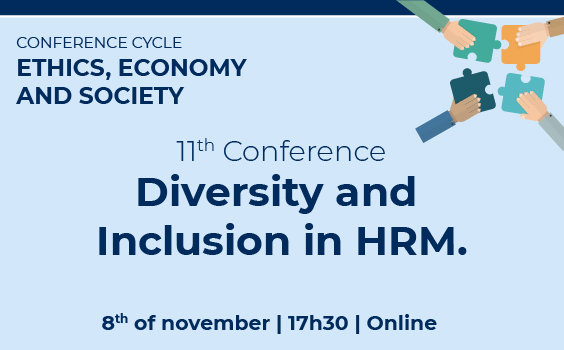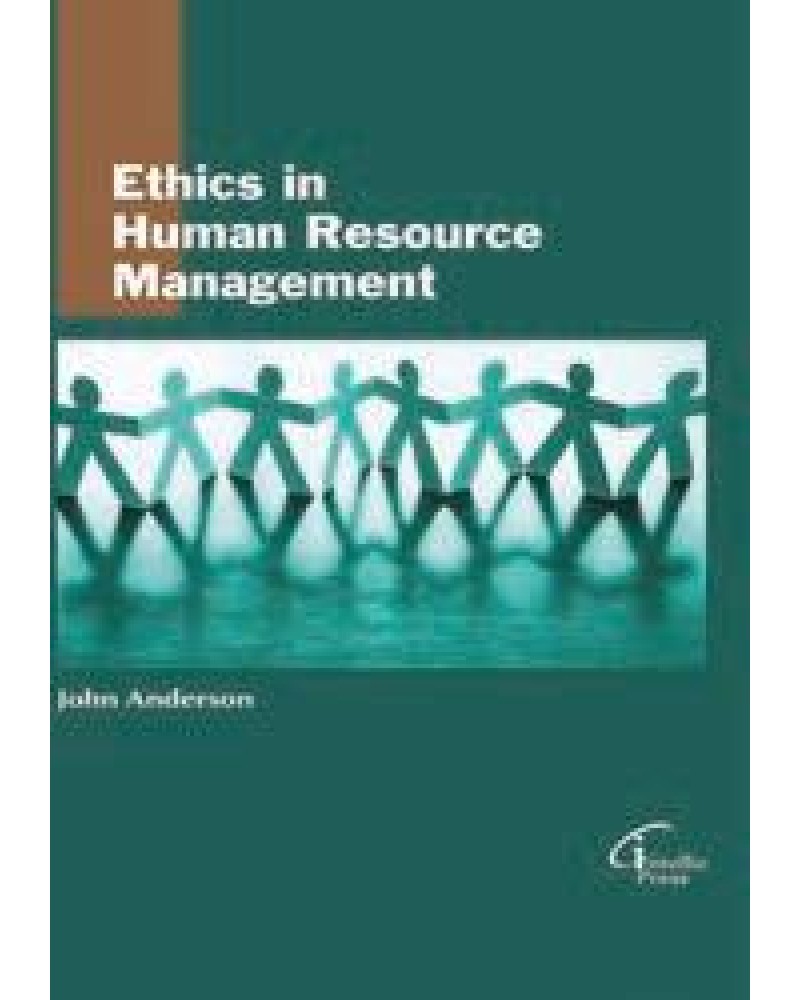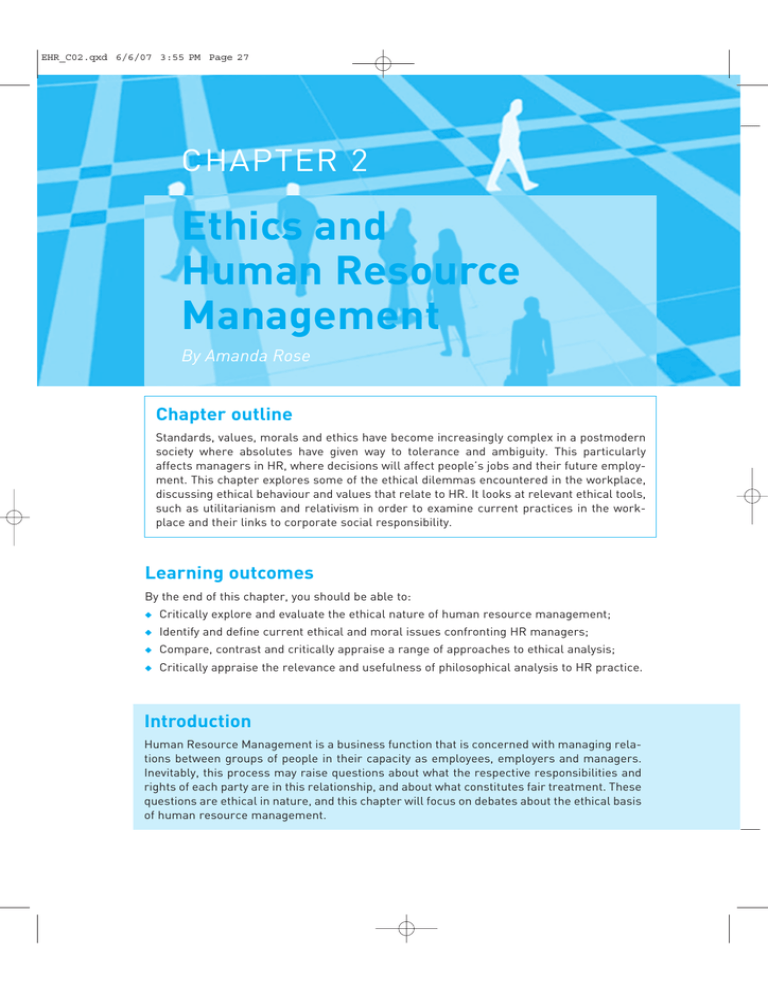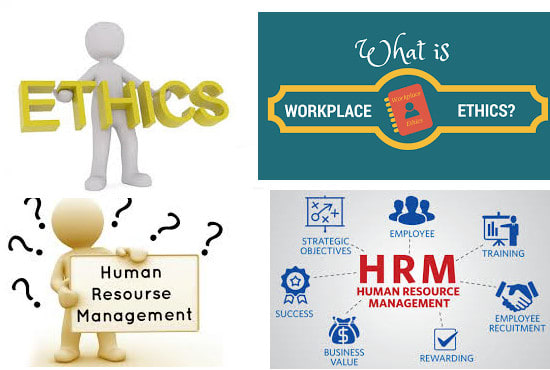Ethics in human resource management (HRM) refers to the principles and values that guide the actions and decisions of HR professionals as they carry out their responsibilities. These ethical principles can include issues such as fairness, transparency, honesty, and respect for the dignity of all employees.
One key ethical principle in HRM is the concept of fairness. This includes treating all employees equally and impartially, regardless of their personal characteristics or background. HR professionals should ensure that all employees are treated equally in terms of hiring, promotion, and other employment decisions. They should also ensure that all employees are held to the same standards and expectations, and that any disciplinary action is consistently applied.
Transparency is another important ethical principle in HRM. This means that HR professionals should be open and honest with employees about the policies and practices of the organization, as well as any decisions that may affect them. This includes providing employees with clear and accurate information about their rights and responsibilities, as well as any changes to their employment status or terms of employment.
Honesty is also a key ethical principle in HRM. This means that HR professionals should be truthful and straightforward in their interactions with employees and stakeholders, and should not deceive or mislead anyone. HR professionals should also be transparent about any conflicts of interest that may arise in the course of their work, and should take steps to avoid or address such conflicts in an ethical manner.
Respecting the dignity of all employees is another important ethical principle in HRM. This means that HR professionals should treat all employees with respect and sensitivity, and should not discriminate against anyone based on their personal characteristics or background. HR professionals should also be mindful of the cultural differences and diversity among employees, and should strive to create a work environment that is inclusive and welcoming to all.
In conclusion, ethics play a crucial role in HRM, as they help to ensure that the actions and decisions of HR professionals align with the values and principles of the organization and its stakeholders. By upholding ethical standards such as fairness, transparency, honesty, and respect for the dignity of all employees, HR professionals can contribute to the overall success and well-being of the organization and its employees.
The role of HR in promoting ethics and integrity in the workplace

Among them are, for example, early concerns with job design in the 1930s, models of industrial democracy in the 1960s, the dabate on human motivational needs during the 1960s and 1970s, the discussion on social responsibility in the 1970s, and the promotion of individual and societal well-being indicated in the Harvard analytical framework for HRM in the 1980s. By applying for certification or recertification, HR professionals agree that they will not challenge the authority of the HR Management Institute to apply the Code of Ethical and Personal Responsibility, the Disciplinary Case Procedures or other policies, and will not challenge the results of any HR Management Institute action taken under these policies in a legal or government forum. Carry out the decision. Therefore, ethics is also called moral philosophy. At the same time, retaliation has reached an all-time high, with almost 80 percent of respondents saying they experienced retaliation for reporting wrongdoing, up from 44 percent in 2017. Note that there are different types of ethics in HRM, and below, we have shared some of the significant ones to help you effectively manage your business.
Ethics and Human Resource Management

The social responsibility of business is to increase its profits, New York Goodpaster, K. When we are actively involved in the world, be it on the freeway, waiting in line, at work or school, we are constantly faced with challenges. It can help shield you from personal legal exposure. They are expected to act and behave in the highest ethical manner. It is essential to remain equal for all the employees and situations without creating any trouble for both the parties. An appropriate decision can be taken with the help of various ethical theories.
Ethics in HRM

Each and every employee is important for the organization to achieve the stated goal so the issues related with the manpower must be identified on time for the better performance Greenwood and Freeman, 2011. You accept professional responsibility for your individual decisions and actions. Therefore, modern HRM puts a lot of effort in techniques of evading the autonomy and privacy of employees e. When HRM hires ethical employees, chances are high that such employees will be consistent in ethical behavior when faced with ethical dilemmas at the work place Saiyadain, 2009. Adherence to these standards is expected from all who hold an HR Management Institute credential and serves to ensure public confidence in the integrity of these individuals. Conclusion A Code of ethics can help you improve your business performance and attract quality talent. These include good reputation, employee loyalty, and most importantly, you get to save money that could have been used in multiple recruitments.







